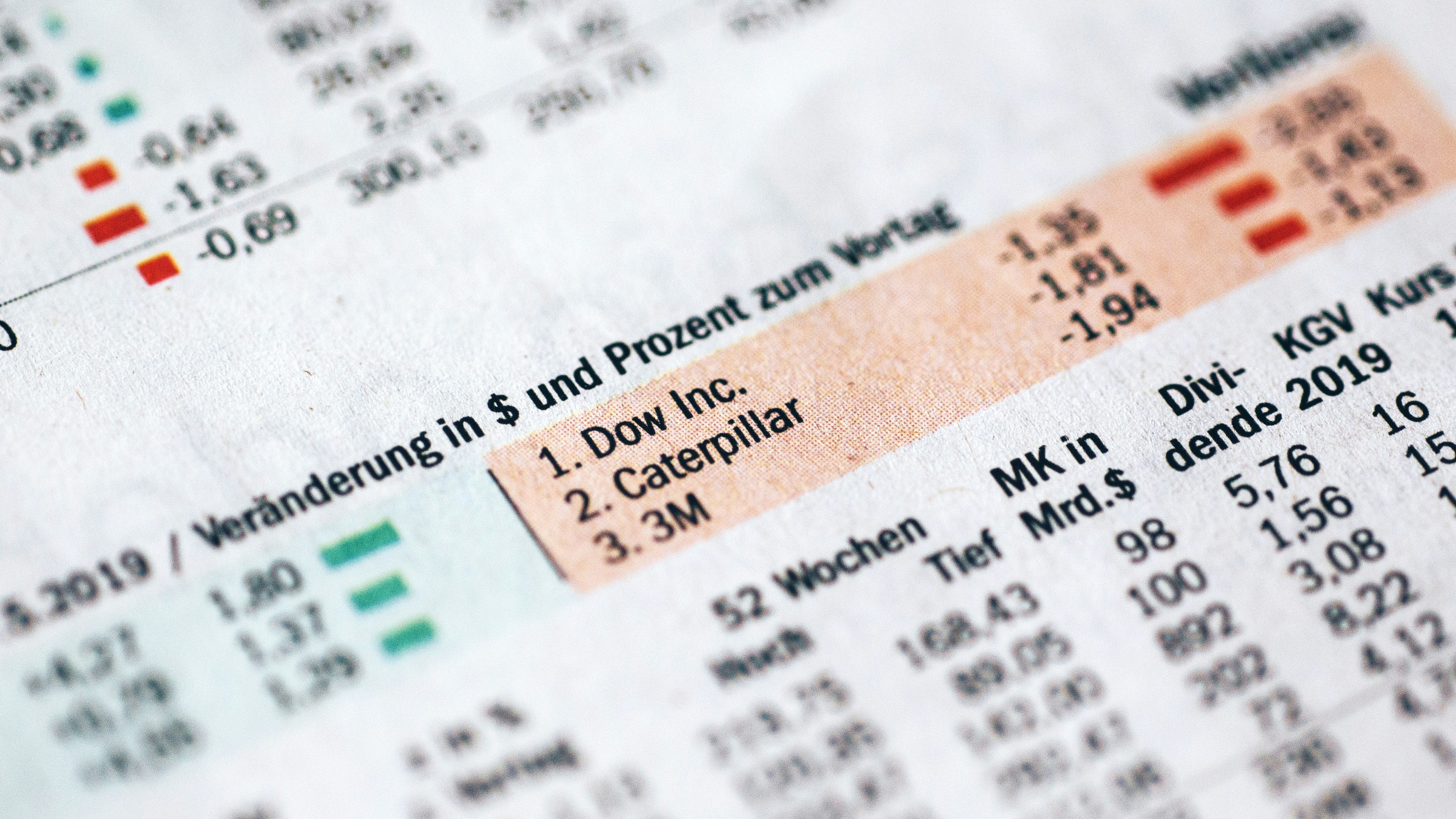
Introduction
Martin Tuchman, a notable figure in the financial sector, serves as a director at Princeton Bancorp, a prominent banking institution committed to providing a range of financial services to its community. Tuchman has recently made headlines by acquiring $60,430 worth of stock in the company, a move that not only showcases his personal investment strategy but also reinforces his confidence in the future prospects of Princeton Bancorp. Insider stock transactions like this one can provide critical insights into the market’s perception of a company’s stability and growth potential.
As a seasoned professional in the banking industry, Tuchman’s actions are closely monitored by investors, analysts, and market observers alike. His decision to purchase shares signifies a personal conviction about Princeton Bancorp’s strategic direction and financial health. When directors and executives buy company stock, it often suggests that they believe the stock is undervalued or that the company is on a positive trajectory. Such insider transactions can also generate increased interest among other investors, potentially influencing stock price movements in the short and medium term.
The dynamics of stock acquisitions by insiders are critical in understanding how company leaders perceive their organization’s financial outlook. In Tuchman’s case, this recent acquisition indicates a strong belief in Princeton Bancorp’s ability to navigate market challenges and capitalize on growth opportunities. As the market reacts, this transaction may not only benefit Tuchman but could also foster greater investor confidence in Princeton Bancorp, enhancing its reputation and attractiveness in the eyes of potential shareholders.
Who is Martin Tuchman?
Martin Tuchman has made a significant impact in the finance and banking sectors through his extensive professional history and notable contributions as a director at Princeton Bancorp. A graduate of an esteemed university, Tuchman holds a degree in finance, laying a strong foundation for his career in the financial industry. His educational qualifications are complemented by decades of practical experience, which have enriched his expertise and helped him build a robust reputation in banking.
Throughout his career, Martin Tuchman has held various influential positions within financial institutions, enabling him to cultivate a comprehensive understanding of the market and the complexities it entails. His work spans multiple facets of finance, including investment strategies, risk management, and regulatory compliance. Such experience positions him as an invaluable asset at Princeton Bancorp, where he has been instrumental in steering the company towards growth and sustainability.
As a director, Tuchman’s responsibilities extend beyond management; he actively participates in high-level decision-making that shapes the future of Princeton Bancorp. His insights into market trends and the banking landscape play a crucial role in the institution’s strategic planning. His notable leadership qualities and commitment to excellence have earned him respect among his peers and solidified his standing in the industry.
In addition to his professional achievements, Martin Tuchman is recognized for his commitment to community involvement and philanthropy. He understands the importance of corporate responsibility and often advocates for initiatives that contribute to the social welfare of the communities served by Princeton Bancorp. Overall, Tuchman’s multifaceted experience and dedication to the banking sector position him as a prominent figure in the field, underscoring his significant influence on the organization’s trajectory.
Overview of Princeton Bancorp
Princeton Bancorp, Inc. is a financial institution rooted in a rich history, having established itself as a significant player in the banking sector. Founded in the early 1990s, this community-focused bank has experienced substantial growth and evolution, driven by its commitment to providing exceptional service to its clientele. The company operates primarily through its subsidiary, Princeton Bank & Trust Company, dedicated to offering personalized banking solutions to individuals and businesses alike.
The core business model of Princeton Bancorp revolves around traditional banking services, including savings and checking accounts, loans, mortgages, and investment products. This diverse array of offerings not only serves the immediate financial needs of customers but also fosters long-term relationships within the community. The bank emphasizes a customer-centric approach, prioritizing personalized service that aligns with its strategy of cultivating lasting partnerships with clients.
Financial performance is a key indicator of any institution’s success, and Princeton Bancorp has consistently reported steady growth indicators. Over the years, the company has shown resilience in its operations, with a stable increase in deposits and a prudent approach to managing loan portfolios. This has reinforced its market position as a reliable banking institution, attracting a loyal customer base in its operating regions. Its strategic goals focus on expansion and enhancement of service offerings, ensuring that Princeton Bancorp can adapt to changing consumer needs within the competitive banking landscape.
In summary, Princeton Bancorp embodies a blend of traditional banking principles with modern financial services, grounded in a strong community-oriented philosophy. With its focused strategies and commitment to customer satisfaction, the bank continues to strengthen its relevance in the dynamic banking sector.
Details of the Stock Acquisition
On [insert date], Martin Tuchman, a director at Princeton Bancorp, executed a notable stock acquisition amounting to $60,430. This investment underscores Tuchman’s strong belief in the company’s future trajectory. The transaction encompassed the purchase of [insert number] shares, with each share priced at approximately [insert price per share]. This strategic acquisition exemplifies Tuchman’s commitment to the organization and indicates his confidence in the company’s long-term profitability.
In the financial landscape, such transactions are often interpreted as a signal of insiders’ confidence and may influence market perceptions. When a director engages in stock purchases, it can suggest they have valuable insights regarding the company’s stability and growth. Tuchman’s decision to invest in Princeton Bancorp could be seen as aligning his interests with those of shareholders, thereby reinforcing trust in the management and operational strategies currently in place.
The completed acquisition will not only impact Tuchman’s portfolio but also signifies an important endorsement of Princeton Bancorp’s vision and strategic goals. Stakeholders might analyze this purchase to gauge the director’s outlook on the bank’s financial health and prospects. By investing, Tuchman is likely sending a message to the market about the company’s underlying strengths, particularly in a period that may be characterized by economic fluctuations.
As these transactions reveal new dimensions of leadership engagement within a company, it becomes essential to track such developments closely. The ramifications of Tuchman’s large-scale acquisition may well extend beyond immediate financial implications, impacting investor sentiment and potentially influencing future growth strategies at Princeton Bancorp.
Implications of Insider Transactions
Insider transactions, such as the recent acquisition of $60,430 in stock by Princeton Bancorp Director Martin Tuchman, can significantly influence investor sentiment and market perception. When executives engage in stock purchases, it often carries a weight of intention that goes beyond mere financial maneuvering; it signifies confidence in the company’s future prospects. Investors typically interpret such actions as a positive indicator, suggesting that insiders believe the company’s stock is undervalued or that its future performance will be favorable.
The implications of such transactions extend to both short-term and long-term perspectives. In the short term, an insider’s purchase can stimulate interest among retail investors and analysts, potentially leading to increased trading activity. This heightened activity may drive stock prices up as investors react positively to the perceived insider confidence. Market trends often reflect these reactions, as stocks tend to rally on news of insider purchases, projecting a bullish outlook on the stock’s future performance.
From a long-term perspective, insider transactions can serve as a barometer of company health. A pattern of strategic purchasing by executives may indicate sustainable growth and organizational stability. Conversely, insiders selling their shares can be perceived as a warning sign, suggesting a lack of confidence in future performance or knowledge of adverse developments within the company. As such, investors often scrutinize the timing and volume of insider transactions to gauge company sentiment.
Ultimately, insider trading is a double-edged sword; it can foster trust but can also evoke skepticism, depending on the context and underlying factors surrounding the trade. As such, investors should always consider insider transactions as part of a broader portfolio analysis, augmenting their understanding of market implications and informing their investment strategies accordingly.
Market Reaction
The acquisition of $60,430 in stock by Martin Tuchman, a director at Princeton Bancorp, has garnered significant interest from market participants. Following the announcement, there was an observable fluctuation in Princeton Bancorp’s stock price, which often serves as an indicator of investor sentiment. Initial reactions were characterized by a modest rise in share value, as some investors interpreted Tuchman’s purchase as a strong vote of confidence in the company’s future prospects.
Trading volume also saw a notable increase in the days following the announcement. A surge in activity typically indicates heightened interest and speculation among investors. In this context, the acquisition may have sparked discussions among market analysts regarding potential growth trajectories for Princeton Bancorp. The board’s decision to endorse such a transaction may suggest underlying confidence in the bank’s operational strategies and financial health.
Furthermore, a review of broader market reactions indicates that investor sentiment remained cautiously optimistic. Stakeholders in the financial sector often scrutinize similar acquisitions closely, as they can reflect the values and priorities of those in governance positions. Tuchman’s strategic move might be seen as aligning with investor interests, emphasizing transparency and a forward-looking approach. Market analysts will continue to monitor this situation closely, as sustained interest in Princeton Bancorp’s stock could bolster its overall market positioning.
In the wake of Tuchman’s stock acquisition, it is crucial to consider how this corporate action may not only influence immediate market fluctuations but also set the stage for future investments. Investors often seek reassurance during periods of volatility, and such acquisitions by directors can serve to bolster market confidence. Overall, the reactions from both the market and investors highlight the complex interplay between leadership decisions and stock performance, making it a vital area of exploration for anyone interested in financial trends.
Financial Analysis
In recent developments, Martin Tuchman, a director at Princeton Bancorp, has made a significant financial commitment by acquiring $60,430 worth of stock in the company. This investment not only highlights Tuchman’s personal confidence in the company’s future but also raises questions about the potential financial implications for Princeton Bancorp. Analyzing Tuchman’s acquisition through a financial lens reveals insights into share valuation, dividend policies, and the broader financial strategy of the organization.
From a valuation perspective, Tuchman’s investment serves as a positive signal to investors and analysts alike. Large acquisitions by directors can often indicate their belief in the company’s growth prospects, potentially steering the share price upward. When a director increases their stake, it conveys a strong alignment of interests between management and shareholders, which can lead to heightened investor confidence and, consequently, a favorable view of the stock’s future performance.
Moreover, Tuchman’s purchase could influence the company’s dividend strategy. Assuming the financial health of Princeton Bancorp remains robust, bolstering share value may allow for enhanced dividend distribution. Investors frequently prioritize dividends as a critical criterion for stock attractiveness, and changes in dividend policies can be pivotal to long-term shareholder satisfaction. Therefore, Tuchman’s stake could initiate discussions about optimizing dividends as part of a broader strategy.
Additionally, Tuchman’s commitment reflects positively on Princeton Bancorp’s overall financial strategy. Directors actively investing in their company’s stock often catalyze corporate boards to focus on sustainable growth strategies. This commitment can reinforce a proactive approach to decision-making that prioritizes long-term success over short-term gains, thus setting the stage for strategic initiatives that could enhance the company’s market position.
In conclusion, Martin Tuchman’s investment of $60,430 in Princeton Bancorp represents a multifaceted financial analysis that underscores not only his personal commitment but also the broader implications for share valuation and corporate strategy. This investment may prove instrumental in shaping investor perceptions and directing the future financial strategies of the company.
Future Outlook for Princeton Bancorp
As Princeton Bancorp navigates through the evolving landscape of the banking sector, several factors will play a crucial role in shaping its future prospects. Recent financial trends indicate a period of cautious optimism, as the institution strives to maintain its competitive edge amidst changing regulatory environments and customer expectations. Martin Tuchman’s recent acquisition of $60,430 in stock not only exemplifies his confidence in the company’s strategic direction but may also signal a broader alignment with Princeton Bancorp’s long-term objectives.
Market conditions are increasingly characterized by low interest rates and competitive pressures, which challenge traditional banking models. In response, Princeton Bancorp may capitalize on opportunities by diversifying its service offerings and enhancing digital banking capabilities. Embracing technological advancements could position the bank favorably in the eyes of both existing and potential customers, ensuring sustained engagement in an increasingly digitized market. Furthermore, the company might focus on strengthening its loan portfolio, which, if managed astutely, could foster growth amidst a robust demand for residential and commercial real estate financing.
However, the company will also face challenges, such as potential economic downturns or fluctuations in the regional economy that may impact asset quality. An increased regulatory focus on transparency and compliance may require adjustments in operational strategies. Investors and stakeholders must remain vigilant about these factors and their collective implications for Princeton Bancorp’s growth trajectory.
In light of these dynamics, Tuchman’s investment underscores a vote of confidence in the leadership and strategic initiatives of Princeton Bancorp. By leveraging emerging opportunities while effectively managing potential risks, the organization is well-positioned to navigate its future in the banking sector. Ultimately, a balanced focus on innovation and prudent risk management will be key to ensuring sustainable growth and profitability.
Conclusion
In summary, the recent acquisition of $60,430 in stock by Martin Tuchman, a director at Princeton Bancorp, signifies a notable moment for both the company and its shareholders. This purchase emphasizes Tuchman’s confidence in the future performance of Princeton Bancorp, potentially indicating a positive outlook from within the organization. Insider transactions, such as this one, can serve as a barometer for investors, reflecting the sentiments and expectations of those who have intimate knowledge of the company’s operations. Tuchman’s investment not only underscores his commitment to the bank but also reinforces the broader appeal of the financial institution in the current market environment.
Moreover, understanding the implications of such transactions is essential for prospective investors. Monitoring stock purchases and sales by company insiders can provide valuable insights into the potential trajectory of the firm. When insiders are buying shares, it often signals their belief that the stock is undervalued, suggesting a future appreciation in share prices. Thus, the acquisition by Tuchman presents an opportunity for investors to assess their strategies in alignment with insider movements.
As the finance sector continues to evolve, deciphering the motivations behind insider trading can offer essential context when making informed investment decisions. In the case of Martin Tuchman and Princeton Bancorp, his recent stock acquisition is a critical indicator worth considering. Therefore, staying abreast of these transactions can empower investors to navigate the stock market more effectively and potentially capitalize on emerging opportunities within the financial landscape.




